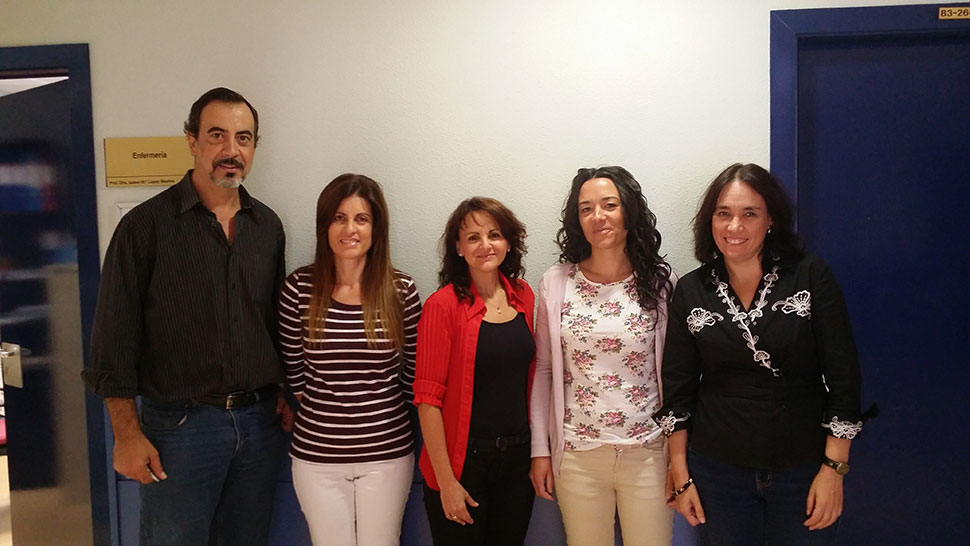Project: NurSus TOOLKIT: A Teaching and Learning Resource for Sustainability in Nursing
Researchers and Institutions:
University of Plymouth (K) (Coordinator country) School of Nursing and Midwifery
• Janet Richardson
• Jane Grose
University of Jaén( Spain)
• Manuel Linares Abad, Nursing Department
• Carmen Álvarez Nieto, Nursing Department
• Gema Parra Anguita, Animal Biology, Plant Biology and Ecology Department
• Isabel Mª López Medina, Nursing Department
• Mª Luisa Grande Gascón, Nursing Department
University of Applied Sciences of Esslingen (Germany)
• Thomas Heidenreich
• Norma Huss
• Astrid Elsbernd
Maastricht University, International Centre for integrated Assessment and Sustainable Development (ICIS) (Netherlands)
• Maud Huynen
• Pim Martens

Background and goals
Sustainable development is a concept vital to healthcare: due to its relatively large carbon dioxide (CO2) emissions, the use of toxic materials and the production of vast amounts of waste, healthcare is ultimately compromising public health and damaging the ability of future generations to meet their needs. In the EU, the health sector creates at least 5% of total CO2 emissions. Improving energy and resource efficiency, procurement policies and waste management are vital for a more sustainable health sector. The Europe 2020 flagship initiative for a resource efficient Europe stresses the need for transition towards using natural resources more efficiently; thus improving energy/resource/cost efficiency in health care for an ageing population (e.g. the EU health strategy). Nursing is one of the largest professions in Europe. Resources available to support sustainability in European nursing curricula are limited and nurse educators are often inadequately prepared to teach students the connections between resources, climate change, sustainability and health. There is no European framework for Sustainability Literacy and Competency (SLC) and no guidelines for sustainability competency or pedagogy. Nurses are agents of change, they have a remit to promote health and control the use of health resources. Embedding climate change and sustainability into nursing curricula will have a qualitative impact on how health care is delivered, allowing for a holistic approach to nurses‘ training to take non-medical issues into account.
Methods
The target audiences are nurse educators, students and healthcare practitioners. Outputs will contribute to the modernization of Europe’s Higher Education agenda by providing an open-access teaching and learning resource, the NurSusTOOLKIT. This will facilitate vocationally relevant sustainability literacy skills and competencies, enabling nurses to work in a labour market which will be required to adjust to and prepare for a changing climate. It exploits the use of ICT, by designing a virtual learning platform and providing opportunities for continuing professional development. The NurSusTOOLKIT will be available in a number of European Languages supporting the delivery of sustainability issues in nursing curricula. It will also be open access. The project will be developing along three years (from September 2014 to August 2017). It will run through the implementation of six interrelated activities. The diagram below illustrates the inter-linkages between the Activities and reflects how the dissemination strategy and actions relate to all aspects of the project.
Project management and reporting; Activity planning; final project report

Aditional information:
How can I participate in NurSus?
NurSus provides a number of opportunities to get information and participate: Newsletters will be published twice a year to inform on developments in the project. Newsletters will appear at the following dates: • February 2015 (Month 6) • August 2015 (Month 12) • February 2016 (Month 18) • August 2016 (Month 24) • February 2017 (Month 30) Stakeholders from different countries will be included in a variety of ways, e.g. in scoping nursing curricula and commenting on early implementations of the TOOLKIT. A teaching event will take place at Esslingen in June 2017 where the TOOLKIT will be presented.
How to reach NurSus
Email: nursus@ujaen.es, nursus@plymouth.ac.uk
Follow us on Twitter @NurSus_EU where you can get information, ask us questions and tell us your views @NurSus_EU #NurSus


